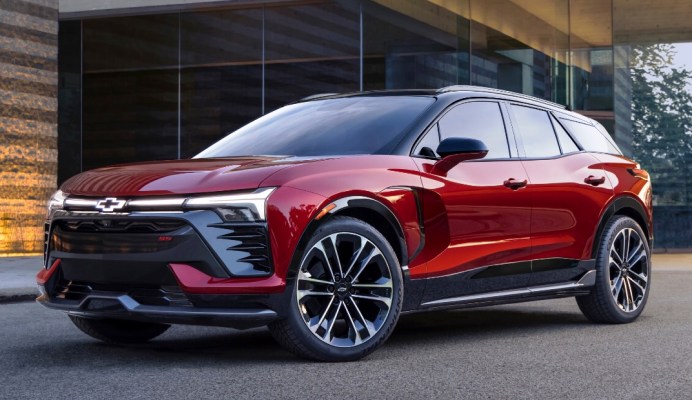GM resumes Chevy Blazer EV sales with new software and lower prices | TechCrunch
[ad_1]

General Motors has resumed sales of the Chevrolet Blazer EV — and at a cheaper price — more than two months after the automaker pulled the vehicle over software problems.
The company temporarily halted sales of the Blazer EV in December after early customers reported problems with the SUV’s infotainment screen and charging at DC fast charging stations.
GM said in a statement that the company “made significant software updates that will improve features and functionality to deliver on the high expectations of our customers. We’re confident these improvements will address concerns heard from some early owners and as promised, we’re carrying learnings over to other products in GM’s lineup.”
The company said it also added other software features, including customizable multi-color ambient lighting and revised graphics with battery percentage display.
Existing Blazer EV owners will have to bring their car into a GM dealership for a software update to address any potential problems going forward. GM didn’t go into detail about what exactly went wrong, only saying that there wasn’t a single root cause. The company says it has improved its quality testing and software processes to prevent similar problems in the future.
The automaker kicked off the return with price cuts and news that the Blazer qualifies for the $7,500 federal tax credit — both of which could help jumpstart sales.
The Blazer EV’s LT AWD trim now starts at $50,195, down from $56,715. The RS AWD now runs $54,595, down from $60,215. And the RS RWD has been cut to $56,170 from $61,790.
Getting the Blazer back on the road is a crucial moment for GM, which is meant to be the first true mass-market EV built on the company’s new Ultium platform. Ultium is slated to underpin a whole lineup of electric vehicles in the coming years, meaning GM has to make sure it works out all the kinks as soon as possible.
The Blazer’s temporary absence also left GM with one fewer EV to sell at a time when it abandoned the Bolt — a decision the company ultimately reversed following a public outcry.
While the company nearly doubled its EV sales in the U.S. from 2022 to 2023, notching more than 75,000, the majority of that was the Bolt (and its more SUV-like sibling, the Bolt EUV).
[ad_2]




